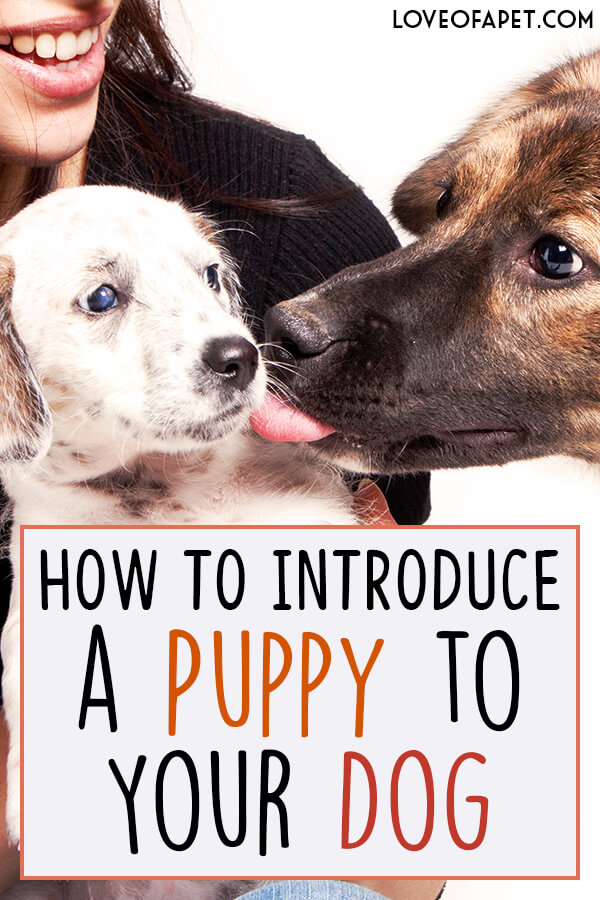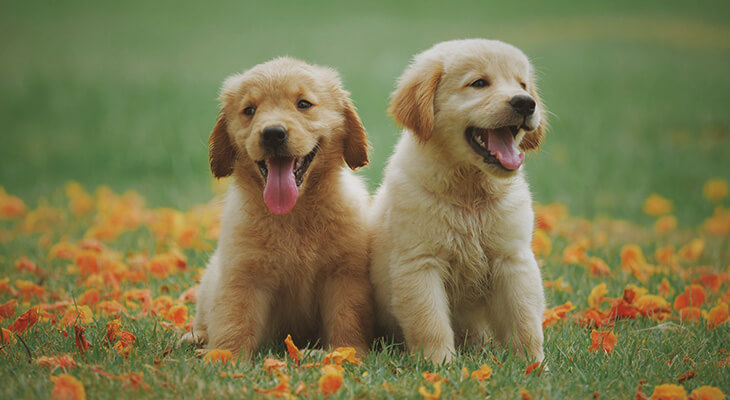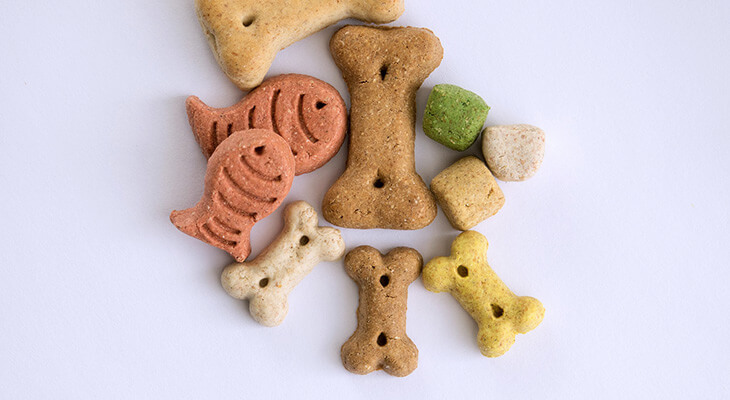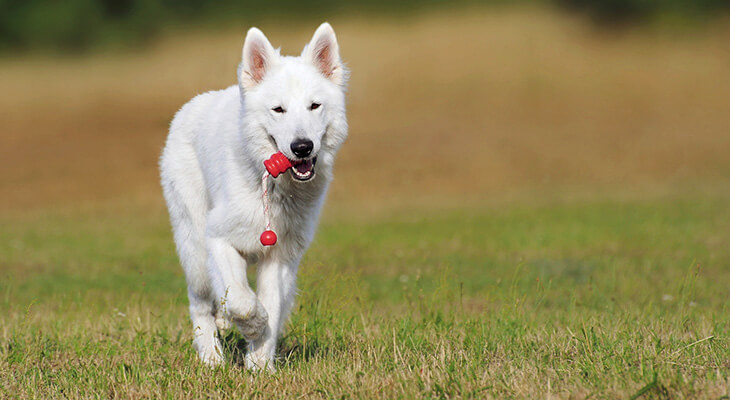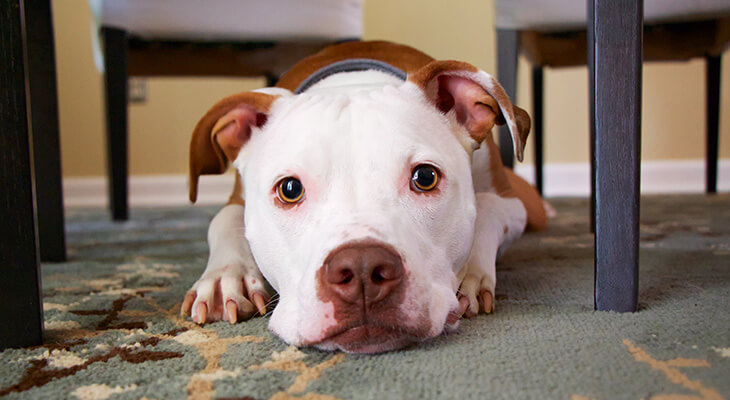You might have heard of sibling rivalry among humans, it is also a common thing between dogs. As a dog owner, you might be thinking a lot of times before adding a new dog member to your family. Your dog gets jealous even when you play with the neighbor’s dog. So getting another one home can be a difficult decision to make.
You can take a chance and expect your elder dog to become a good parent or sibling to the new puppy. But even if it doesn’t happen, you don’t have to be disappointed. Not accepting the new member with open arms is normal. You need to know a lot of things to start a happy family with your new puppy. Making the process of introducing a puppy to your dog is not too difficult.
Contents
Reality v/s expectation
What you expect from your dog when a puppy arrives home is different than what happens in reality. Since puppies are away from their mothers and littermates, they expect a lot from the new family, including the dog.
However, the new dog may snap at the new addition and not spend any time with them. They might also get jealous when their owner is spending time with the new puppy. Another thing to notice here is that the dog will never hurt the puppy just move away from them. These things are normal and get fine with time.
What actually happens when a dog meets a puppy?
Puppies are new to the world and their maximum interaction has been either with their mother or littermates. They are still learning the tricks of the world and how everything around works. Their interaction skills are not mature enough to understand how to reach with new dogs and surroundings. They are eager to explore everything that comes in their way.
They want to play with the dog they live with. But their way of playing is different from the way adult dogs play. Not just playing, adult dogs are different in many ways compared to pups. Since they are experienced, they have made their own rules. How and when they want to play? How long they want to play and what kind of interactions they enjoy? They have a set structure to follow throughout the day. Everything they do through the day is predictable. Dogs also share a language among themselves in which adults are fluent than the puppies.
On the other hand, puppies are not aware of these rules and know nothing about dog communication. When puppies play among themselves, their only concern is to avoid hurting other puppies. Apart from this, there is no rule book they follow. Puppies can happily jump over each other’s heads and still enjoy the playtime. They cannot do this with adult dogs for obvious reasons.
How to get the friendship started between these two?
Just like how there needs to be harmony between family members for a happy household, there needs to be harmony between the puppies and dog too.
1. Supervise:
A puppy will effortlessly keep trying to communicate with the adult dog. And the adult dog might keep pushing the poor pup away. It is therefore essential for you to supervise their interactions. You need to guide your puppy so that he understands what is acceptable and what is not so that the adult dog doesn’t get agitated. Even the adult dogs will appreciate your presence and you can also avoid a lot of nuisance that can happen between them. The constant supervision will not give the dog any chance to bark or snap at the real one.
2. Social skills:
Along with supervision, you will need to set the stage for teaching him social skills. Unless you set boundaries with the puppy, he will not learn the vital skills to survive with the dog. Initially, the adult dog may understand the eagerness of the puppy and let him explore. But soon he might reach a limit and lose patience. He might also strike the pup harder. Therefore it is necessary to teach the puppy what is accepted and what is not. It will avoid these unnecessary blows to the puppy in the future.
3. Separation:
Both the puppy and dog should get some separate time multiple times throughout the day. You can put either of them in a crate or behind a gate to give them some space and time alone. Puppies are energetic while dogs prefer to lie around for a longer time. Schedule enough break times consistently so that the adult dog doesn’t get pestered a lot. This will let the puppy also understand the importance of some me-time.
4. Escape:
There may be times when you are not around and the puppy is annoying the dog. You need to start preparing them for such a situation since the very first day. Every time you see the dog getting annoyed, instruct him to run to the kennel or his bed. Offer him a treat that he can peacefully enjoy in his closed corner. Soon the dog will understand this trick and run away themselves in such situations. This way it is a win-win situation for the three of you.
5. Punishments:
In tricky situations, you might have the urge to punish either the puppy or the dog. You need to avoid doing this to let both of them understand each other’s limits. Dogs may growl when they do not want the puppy to mess with them. Since puppies do not understand the subtle signs, it is common for dogs to growl. The growling will let puppy recognize such situations in the future. Do not correct any of them instead just supervise and use other methods to manage both of them.
6. Reinforce:
It is necessary to let the adult dog know when they are doing things right. Use the clicker training techniques to teach tolerance to the adult dog. If your dog doesn’t bark or snarl at the puppy when the puppy sits next to him, it is good behavior. It shows that the dog is ignoring the puppy and eventually will start tolerating him if his behavior is molded properly. Ignoring is anytime better than snarling and growling. You can slowly start to expect more from the dog.
7. Intervene:
It is not necessary for all dogs to like puppies. Few of them will totally hate them and it is perfectly fine. While they may let the puppy be around them, they might take some severe action when left alone or unattended. Keep an eye on how they are interacting and if you find things going the wrong way intervene immediately. Puppies might squeal when they see the dog’s aggression. Dogs that are mature and understand the dog language should back off immediately. If the dog still doesn’t back off, then you need to definitely take charge and separate them.
With time both the puppy and the dog will realize their limitations and boundaries. They will soon get along with all your help. It should take no more than 3 weeks for both of them to begin a friendship and develop a fondness for each other. Even if they do not become best friends, you will definitely see an undisturbed and peaceful co-existence between the two.
